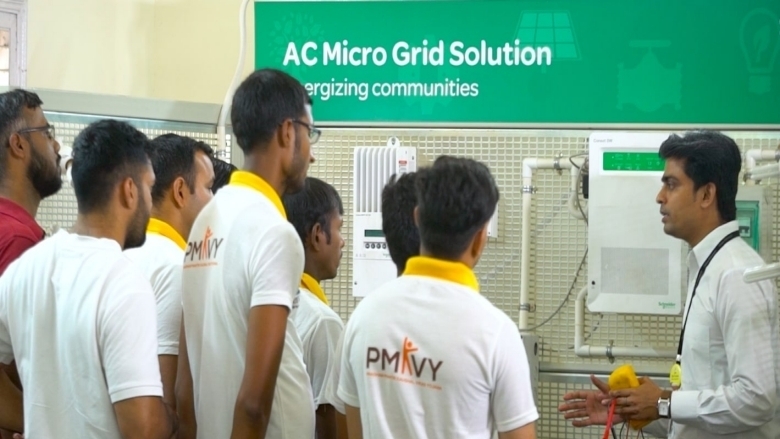Project Approved: 23-June-2017; Effective: 19-Jan-2018; Closing: 31-Mar-2023
Commitment Amount: $250 million
Disbursed: 6.6%
Project Context:
The Government of India (GoI) has developed an ambitious plan to transform India into a competitive, high-growth, high-productivity middle-income country. With According to government estimates, To address this, GoI has set a target of skilling 400 million new and existing workers by 2022.
The World Bank-supported operation seeks to:
- Strengthen institutions at the national and state levels so they can plan, deliver, and monitor training in high-quality market relevant skills;
- Incentivize states to deliver quality and market-relevant skills’ development programs;
- Improve access and completion rates for women and other disadvantaged groups;
- Encourage the private sector to support skills’ development
This operation uses two lending instruments: the Program for Results (PforR) instrument that supports GoI in its focus on impact and accountability for results, and the Investment Project Financing instrument which supports program management, monitoring and evaluation, and capacity development of the implementing agency – the Ministry of Skill Development and Entrepreneurship (MSDE).
The program also supports the National Skills Development Corporation, the public-private partnership arm of the government that catalyzes private sector and employer interface into skills programs.
Progress:
Until FY 2018-19, 2.59 million trainees have undergone skills training and 33 percent were self-employed (higher than the target set for that year). Over 4,400 trainers and 3,850 assessors were trained against a target of 2,000 and 500, respectively, for FY 2018-19.
All states and union territories are participating in SANKALP and baseline scores for the State Incentive Grant matrix have been completed for 10 states already. The State Incentive Grants will motivate states to set up a decentralized skills development ecosystem that builds capabilities and enhances employability, especially of the youth and the marginalized.
A Skills Fund Manual is being prepared and the Skill India Portal—the national management information system for skills—will ensure all centrally and state sponsored schemes and initiatives are integrated within by early next year.
Efforts have been made to enhance the quality and relevance of training programs; strengthened mechanisms have been created to meet the needs of the vulnerable populations.
Next Steps:
The World Bank, along with the Ministry, has identified key areas of action for improved implementation:
- Expedite hiring of additional personnel at national, state, and district levels
- Expedite development of state-level management information systems
- Improve fund disbursement by SANKALP so that cash flows to states remains unfettered
- Deepen cross-regional partnerships. The World Bank is already facilitating an India-Africa partnership through which India will support African countries as they set up regional bodies like the NSDC and Sector Skills Councils for better coordination with market demands for skills.
